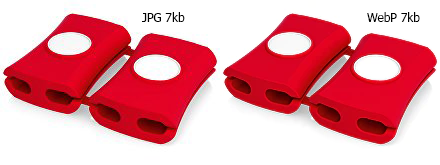WebP will soon capture the web, but the century won't be long

WebP image coding standard can not be called new, it was introduced by Google in the already distant 2010. However, all this time, its use was severely limited due to the fact that browser developers had their own opinion about what new image format their browser should support. But soon the situation will change, because, finally, WebP support will appear on the vast majority of browsers. But the WebP standard risks becoming popular, being already outdated, because its competitor, AVIF, supported by an alliance of most browser developers, is already in active development.
WebP support
Despite the openness of the WebP format, Firefox has long been pulling with the introduction of WebP. The developers of the "fox" for a long time tried to promote the APNG format as a replacement for the animated Gif, WebP in this regard interfered with the promotion. In addition, Mozilla experimented with improving the compression algorithms jpeg, and even introduced its MozJpeg encoder. Nevertheless, it was decided to finally include WebP support in the Firefox codebase, and is planned for release in Firefox 65 in the first half of 2019.
Microsoft initially relied on JPEG XR, and the decision not to implement WebP was more political. However, the promotion of this format was hampered by the fact that this format was not free from licensing, so adoption by the Open Source community would never follow. As for WebP, Microsoft’s view of it has recently changed, and has already implemented support for it in Edge 18.
At the moment, the only participant who has no plans to include WebP support in their browsers is Apple, even though its test support was in the Safari browser. The reasons for this are, firstly, Apple has its own HEIF format, based on the HEVC video compression standard. Secondly, in active development, the AVIF format, which is much more modern than WebP. As will be further - time will tell.
WebP is outdated
The WebP format is based on the VP8 video codec compression algorithm. Although its efficiency over JPEG is beyond doubt, VP8 itself is already outdated, and there are more efficient algorithms in VP9, HEVC and AV1. If the use of the second is not possible because of the license components, then the latter is specially developed free of royalties.
At the moment, the Alliance for Open Media Alliance, which is developing the AV1 standard, includes almost all participants in browser building - Google, Microsoft, Mozilla, and Apple. In addition, the alliance includes chip developers, and promise to introduce hardware acceleration, which is important, especially for mobile devices. In general, the prospects of AV1 / AVIF look rosy, but as long as it does not exist, WebP for images looks like a good alternative.
